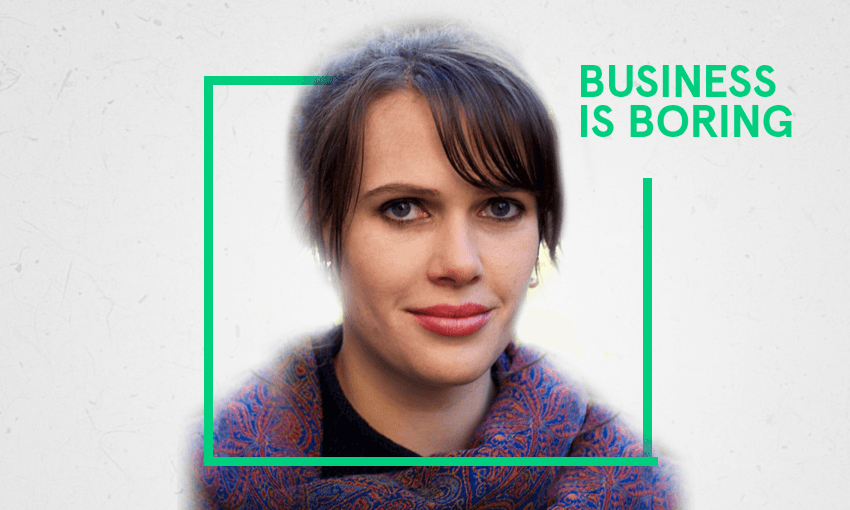Business is Boring is a weekly podcast series presented by The Spinoff in association with Callaghan Innovation. Host Simon Pound speaks with innovators and commentators focused on the future of New Zealand, with the interview available as both audio and a transcribed excerpt. This week he talks to Veronica Harwood-Stevenson from Humble Bee.
A few years after studying science, but beginning a career in cosmetics, lingerie and film, today’s guest was reading a science journal for fun. A line about the properties of native bee-excreted nesting material caught her eye and made her wonder if it might make a good bioplastic. What for some might have been a quick musing, for Veronica Harwood-Stevenson became a mission and then company.
It’s taken her across New Zealand and Australia to find specimens, had her duck venomous locals and bushfires, find collaborators and funding, and led her to start working to commercialise the material under the name Humble Bee. To chat the journey, inspiration and making that action, Veronica joined the podcast
Either download this episode (right click and save), have a listen below or via Spotify, subscribe through iTunes (RSS feed) or read on for a transcribed excerpt.
So do these bioplastic bees sting? Do the have queens? Do they feed on certain kind of native flower as opposed to what other bees do? Where would we find them?
The New Zealand native bees feed on native plants and one thing that I would love to highlight to people is that pollinators and plants co-evolve and so without our native bees or native moths we don’t have the plants that they pollinate. So we have to be really careful about habitat loss and insect spraying and whatnot because if we lose one we will lose the other.
You will find them on pohutukawa as well as flax – they do this very cute thing where they concentrate nectar on the curvature of a flax leaf.
That’s so cool, I remember a couple of years ago there was a series of plantings across the motorway system because the motorways had cut this line right through Auckland and the native birds hadn’t had their nesting paths, so we needed to make little islands where native birds could feed. So if you are sitting on the motorway on-ramp and happen to see flax to your right, you’re very likely to see a tui which is quite a lovely experience.
Yes it’s amazing and one of the reasons I studied biology was that I was an outdoor kid making mud pies, exploring my surroundings and doing experiments on skinks. I love the biological world and I think it is full of inspiration, ideas and chemistry that we should be looking at in terms of solving some of the problems we have created for ourselves.

